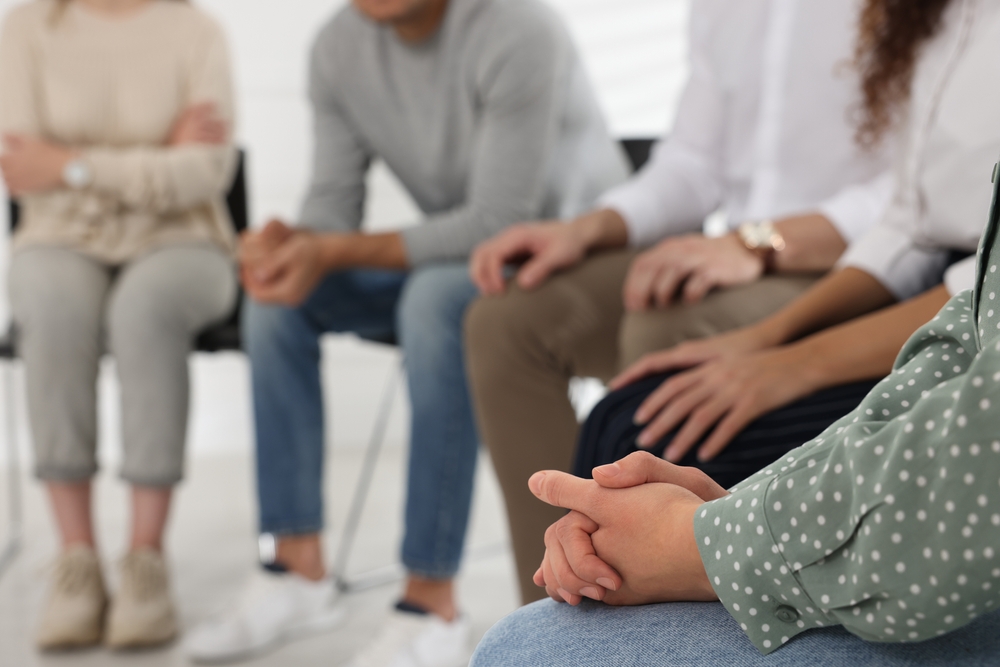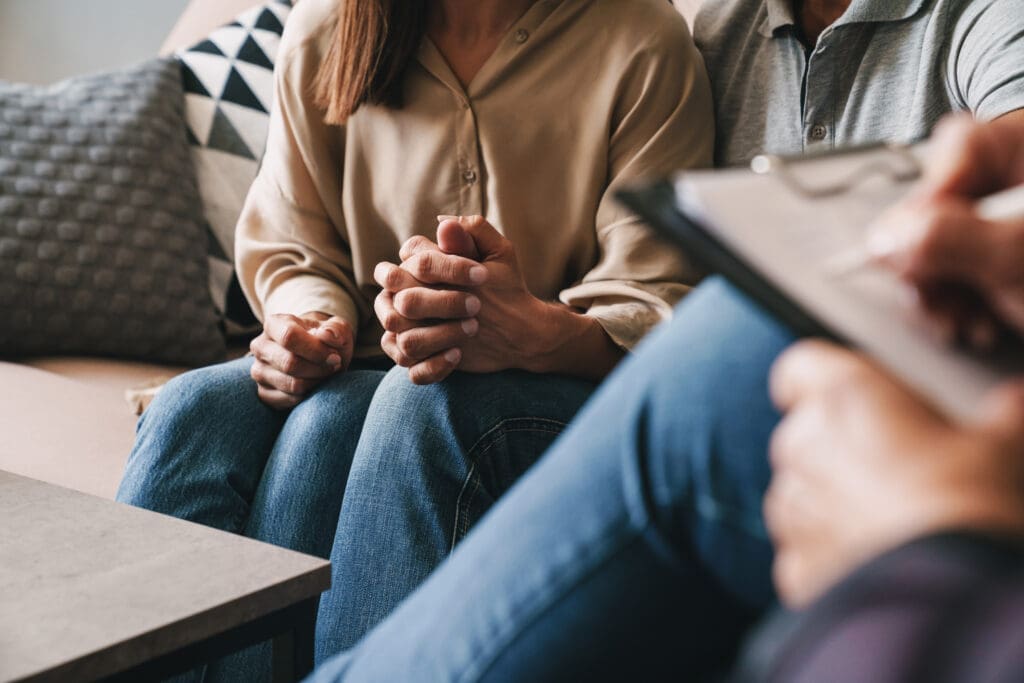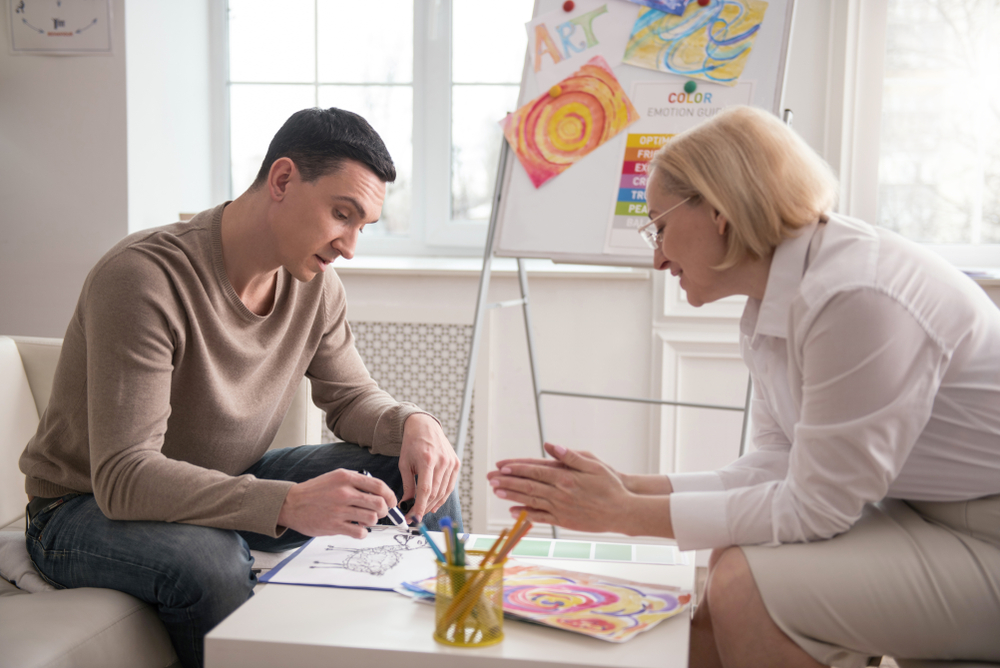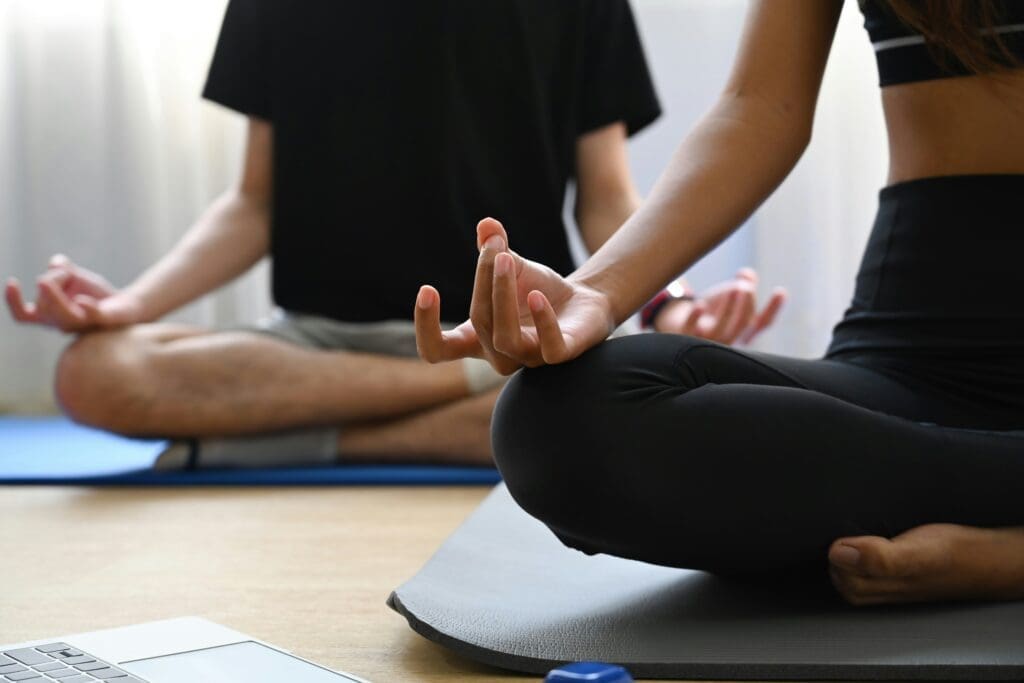- Home
- Treatment
Treatment Designed for You.
Get in touch with Absolute Awakenings today and begin your journey to long-term healing & recovery. - What We Treat
An Experience in Healing
Get in touch with Absolute Awakenings today and begin your journey to long-term healing & recovery. - About
The Rehab You've Been Looking For
Get in touch with Absolute Awakenings today and begin your journey to long-term healing & recovery. - Tour
- Resources
Does Insurance Cover Alcohol Detox?
March 26, 2025The Dangers of Mixing Opioids and Alcohol
March 26, 2025How to Avoid Fentanyl-Laced Heroin
March 26, 2025Finding a Job After Rehab
March 26, 2025Don't Wait Another Day.
Get in touch with Absolute Awakenings today and begin your journey to long-term healing & recovery. - Admissions
The Rehab You've Been Looking For
Get in touch with Absolute Awakenings today and begin your journey to long-term healing & recovery. - Contact
(866) 627-0196
3000 NJ-10, Morris Plains, NJ 07950
admissions@absoluteawakenings.com
Schedule a Tour Now
Get in touch with Absolute Awakenings today and begin your journey to long-term healing & recovery.
Begin Your Journey Now
Begin Your Journey Now
- Home
- Treatment
Treatment Designed for You.
Get in touch with Absolute Awakenings today and begin your journey to long-term healing & recovery. - What We Treat
An Experience in Healing
Get in touch with Absolute Awakenings today and begin your journey to long-term healing & recovery. - About
The Rehab You've Been Looking For
Get in touch with Absolute Awakenings today and begin your journey to long-term healing & recovery. - Tour
- Resources
Does Insurance Cover Alcohol Detox?
March 26, 2025The Dangers of Mixing Opioids and Alcohol
March 26, 2025How to Avoid Fentanyl-Laced Heroin
March 26, 2025Finding a Job After Rehab
March 26, 2025Don't Wait Another Day.
Get in touch with Absolute Awakenings today and begin your journey to long-term healing & recovery. - Admissions
The Rehab You've Been Looking For
Get in touch with Absolute Awakenings today and begin your journey to long-term healing & recovery. - Contact
(866) 627-0196
3000 NJ-10, Morris Plains, NJ 07950
admissions@absoluteawakenings.com
Schedule a Tour Now
Get in touch with Absolute Awakenings today and begin your journey to long-term healing & recovery.
Art Therapy Program in New Jersey
Art Therapy
- Written By: Amanda Stevens, B.S.
- Reviewed By: Dr. Po-Chang Hsu, M.D., M.S.
- Updated:
- Published:
- Reading Time: 8 minutes
Discover how art therapy can help you find long-term recovery from substance use and mental illness.
promoting long-term recovery
Engage in Your Creative Side
They say art imitates life, and at Absolute Awakenings, we know this to be true. Many artistic pursuits will give each person a unique feeling, thought, or perspective. The same is true of art therapy programs.
When you’ve experienced a negative event or are struggling with substance use or mental health challenges, your interpretation and interaction with life can become skewed. Working with an art therapist offers a new way to engage with past experiences and present obstacles in order to heal and recover more completely.
trauma-informed, therapeutic solutions
Our Therapies
-
Cognitive Behavioral Therapy
-
Dialectical Behavioral Therapy
-
Motivational Interviewing
-
Acceptance & Commitment Therapy
-
Interpersonal Therapy
-
Family Therapy
-
Art Therapy
-
Yoga Therapy
-
Muay Thai
-
Music Therapy
-
Hypnotherapy
 Cognitive Behavioral Therapy is a form of talk therapy that helps you to identify negative thoughts and feelings. The goal is to help you understand the sequence of events that lead to undesirable behaviors and stop the cycle before it begins.
Cognitive Behavioral Therapy is a form of talk therapy that helps you to identify negative thoughts and feelings. The goal is to help you understand the sequence of events that lead to undesirable behaviors and stop the cycle before it begins.
 DBT was initially created to treat personality disorders but has since maintained prominence as an industry-leading mental health and substance use treatment. While similar to CBT, DBT is a psychotherapy approach that helps you identify and accept two potentially contradictory things in your mind. For example, feeling intense emotions about something and comparing this to the truth about that thing.
DBT was initially created to treat personality disorders but has since maintained prominence as an industry-leading mental health and substance use treatment. While similar to CBT, DBT is a psychotherapy approach that helps you identify and accept two potentially contradictory things in your mind. For example, feeling intense emotions about something and comparing this to the truth about that thing.
 Considered more of a counseling approach, Motivational Interviewing is a person-centered and targeted intervention that helps clients identify and address ambivalent feelings about their actions. The intention is to rebuild or develop their own personal motivation to make positive behavior changes.
Considered more of a counseling approach, Motivational Interviewing is a person-centered and targeted intervention that helps clients identify and address ambivalent feelings about their actions. The intention is to rebuild or develop their own personal motivation to make positive behavior changes.
 The goal of ACT is for the client to increase their psychological flexibility by implementing several effective behavioral changes and commitment-based strategies. By accepting hardships or challenges and committing to a healthy response, the client creates positive habits.
The goal of ACT is for the client to increase their psychological flexibility by implementing several effective behavioral changes and commitment-based strategies. By accepting hardships or challenges and committing to a healthy response, the client creates positive habits.
 Interpersonal Therapy is a form of psychotherapy. The goal is to help clients address their worries and obstacles and improve interpersonal communication and enhance their relationships. The client learns new ways to relate to their circle, their circumstances, and the world around them to develop and maintain healthy relationships.
Interpersonal Therapy is a form of psychotherapy. The goal is to help clients address their worries and obstacles and improve interpersonal communication and enhance their relationships. The client learns new ways to relate to their circle, their circumstances, and the world around them to develop and maintain healthy relationships.

The road to recovery for someone struggling with alcohol or substance use often brings the family along. Family Therapy is a safe space for every member of the family to be heard, feel seen, and work through their challenges as a group. Here, there is room for the whole unit to be supported and pursue healing, not only the primary client.
 Art Therapy is a form of Experiential Therapy that facilitates a hands-on approach to recovery. The client will engage in multiple activities, such as creating or viewing the arts. From drawing and pottery to painting and art museums, the therapist will help the patient engage with all aspects of the craft.
Art Therapy is a form of Experiential Therapy that facilitates a hands-on approach to recovery. The client will engage in multiple activities, such as creating or viewing the arts. From drawing and pottery to painting and art museums, the therapist will help the patient engage with all aspects of the craft.
 This type of yoga is not simply a workout, although that is often a natural byproduct. Yoga Therapy is an interactive therapeutic approach that engages the whole patient, body, mind, and soul. By connecting these three facets of a person, clients can begin to ease physical, mental, and emotional complaints.
This type of yoga is not simply a workout, although that is often a natural byproduct. Yoga Therapy is an interactive therapeutic approach that engages the whole patient, body, mind, and soul. By connecting these three facets of a person, clients can begin to ease physical, mental, and emotional complaints.

Muay Thai isn’t just for self-defense and movement. It’s also an evidence-back therapeutic outlet that promotes stress relief, focus, and personal discipline. All of these attributes make it a highly-effective therapy technique for drug and alcohol dependence.

Music Therapy is another form of Experiential Therapy that actively engages the client in their treatment with a hands-on approach. Activities range from listening, writing, and playing music under the direction of a skilled provider. Don’t worry, you don’t need to know how to play an instrument in order to participate.

Hypnotherapy is nothing like a hypnotist on a stage. It is, however, an evidence-based and highly-effective therapeutic intervention. In Hypnotherapy, the therapist helps to create a state of increased attention and concentration. Inducing a state of hypnosis gives a sense of heightened awareness and allows the client to process experiences from a detached perspective.
how does art Therapy Work?
What is Art Therapy?
Art therapy is an evidence-based therapeutic modality or psychotherapy that is common practice for treating substance abuse and mental health challenges. Creative arts therapy activates different parts of your brain as you partake in activities related to fine arts, such as music, theater, pottery, dance, painting, sketching, and journaling.
According to the American Art Therapy Association, art therapy is used to help patients improve their cognitive and sensorimotor functions, foster healthy self-esteem and increased self-awareness, cultivate a greater emotional resilience, promote valuable insights, enhance social skills and interpersonal effectiveness, and help the patient to reduce and resolve conflicts and distress.[1]
These practical and helpful counseling services are administered by the art therapist, who will guide you as you navigate inner thought processes, natural impulses, and automatic responses to problematic stimuli or memories. A creative art therapist or professional art therapist will carry the proper licensure and either a bachelor’s degree or master’s degree.
The Different Types of Art Therapy
There are many different forms of creative arts therapy, each one with different applications for holistic well-being. Our admissions team will work closely with your art therapist to design a customized treatment plan that matches your individual needs and goals. These therapy sessions are designed to promote personal wellness while also engaging in a calming and immersive activity.
Anything from painting, drawing, ceramics, crafting and hobbies would be a creative expression. When administered by a qualified creative art therapist, the patient will be guided through psychotherapy techniques and other forms of talk therapy as they participate in artistic pursuits.
Music therapy could be listening to or playing an instrument while working with a creative art therapist. There is no need to be skilled in any instrument in order to participate in these therapy sessions.
A creative art therapist or music therapist will design music sessions for each individual or group based on their unique needs. In these sessions, they will facilitate improvisation, reflective listening, individual and collaborative songwriting, lyric discussion, imagery, performance, and interdisciplinary treatment planning.
When administered by a creative art therapist, dancing becomes an entirely different experience. Dance art therapy programs help patients connect their bodies with their minds through intentional and focused movement to improve self-esteem and self-awareness and improve personal well-being.
Drama art therapy programs participate in directing and roleplaying events from each participant’s past. The creative art therapist will facilitate all activities, and participants will take turns presenting and directing their stories.
As you direct the other participants playing various roles within your story, you will gain a new perspective on your own experience. When it’s their turn, you will be able to fulfill a support role and learn from the experiences of others.
do I have to be an artist?
Can Anyone Participate in Art Therapy in NJ at Absolute Awakenings?
The American Art Therapy Association reports that working with a creative art therapist is beneficial for people who are struggling with substance abuse, mental health concerns, significant life transitions, and traumatic experiences, as well as those seeking creative, emotional, and spiritual growth.[2]
Through creative art blended with psychotherapy sessions, you can look for themes in what you create and gain valuable insights about who you are, what you’ve been through, and where you want to go next. If you or a loved one are struggling with any or all of these challenges, get help today. Contact the admissions team at Absolute Awakenings today to begin treatment planning today.
How Art Therapy in NJ Helps Our Clients
The great Pablo Picasso once said: “Art washes away from the soul the dust of everyday life.” This is especially true of art therapy programs. These sessions are beneficial for patients and families who experience different forms of stress, trauma, abuse, and mental health challenges. Participants in art therapy programs safely identify undesirable patterns, express their emotions, and develop stronger self-awareness, increased interpersonal effectiveness, and practical coping skills by participating in the creative process.
We Accept With Most Major Insurance
If you or a loved one is ready to get help but finances are holding you back, give us a call. We can work with your health insurance provider.







Stories of Hope & Healing
Hear from Our Alumni
A jewel among many local drug and alcohol rehab treatment centers in Denville, New Jersey, the care and treatment options you’ll receive at Absolute Awakenings is second to none. From not knowing if you’ll ever feel in control again to being confident in the path you’re on, we are invested in YOU every step of the way.
Answers to Common Questions About Art Therapy in NJ
Art Therapy FAQs
When working with a creative art therapist, patients are empowered to express their emotions, improve self-esteem, mitigate stress, overcome substance use, and reduce the symptoms of anxiety or depression. All of these benefits are critical steps to maintaining recovery.
Self-expression through fine arts is helpful for mitigating the symptoms of anxiety, depression, and stress. Artistic pursuits have also been linked to memory and reasoning skills, as well as improving resilience.
Patients and families of all ages can take advantage of beneficial art therapy programs. Research shows that enjoying and engaging in artistic pursuits and creative arts therapy can positively impact your mental health and overall wellness.
Whenever a vulnerable person comes into contact with powerful emotions and symptoms of their substance use or mental health challenges, there is always the risk of discomfort as they navigate those emotions. Feelings may intensify in the early stages of treatment but the goal is to reach a place where these symptoms are reduced and no longer disruptive.
helping each other navigate life's challenges together
Self-Expression Meets Recovery with Art Therapy in New Jersey
Express your way to healing and recovery and work with a professional art therapist at Absolute Awakenings.
Begin Your Journey to Long-Term Healing
Make the Call. Change Your Life.
Yes, You Can Get Your Life Back...
With our trained and compassionate professionals in your corner, freedom can be yours. All it takes is you choose yourself. Choosing a better tomorrow.
© Copyright 2024. All Rights Reserved. AATC.
- Terms & Conditions
- Privacy Policy


